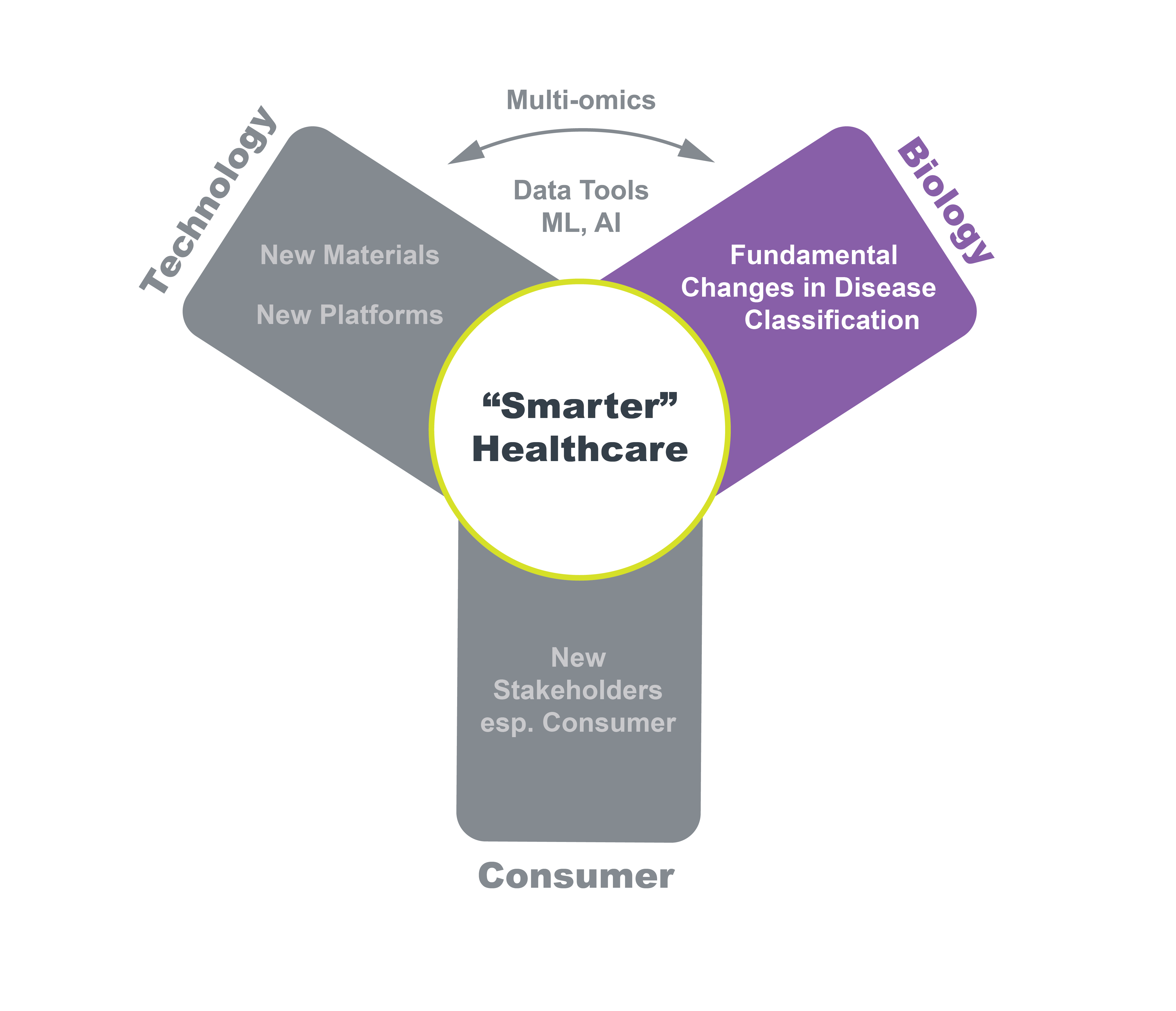
24 Jun Biology Drivers in Smarter Healthcare
Once, the earth was flat…and disease was defined by the organ in which it was thought to originate…and (lest we forget)…cancer cells did not circulate.
Only some of this is ancient history.
A few weeks ago over coffee, Caroline Popper (Popper & Co) and I had a fascinating conversation about the path toward “Smarter Healthcare”. This second post in a series of four highlights the implications of tremendous new biology insights.
New biology insights, along with technology advancement and the rise of the consumer, are a primary driver leading us to smarter healthcare. By using new research tools, we can determine with growing clarity that:
- Disease is neither homogeneous nor static: Disease is heterogeneous and it evolves.
- Disease is better defined by the aberrant pathways it uses than by the organ in which those pathways first go awry.
- The immune system and inflammation are critically important across disease states – this knowledge is now highly topical in cancer treatment and is also moving beyond cancer. Further we know that microbiota play an important role in immune status across many disease states both proximal to and remote from the microbiome itself.
- Both the disease micro-environment (stroma) and macro-environment (social determinants of health) have a significant impact on prognosis.
These 4 aspects of disease re-classification are now both obvious and core to what we do:
- Disease heterogeneity requires one to drill down at the single cell level on several cell types that make up the disease, including inflammatory cells. Disease evolution, often in response to treatment, requires us to invent and validate monitoring approaches.
- Taking a pathway-centric approach has profound and disruptive implications for diagnostics (highlighting the importance of predictive testing) and drug development. A detailed understanding about the signaling pathways that drive the biology of the cell (including the cancer cell) has led to the discovery of numerous drug targets and molecular markers that have informed more precise diagnosis, stratification of patients, and the development of precision therapeutics.
- The human “host” responds to all disease types: infectious, auto-immune, malignant…we are increasingly aware of therapeutic options that harness the immune system (immuno-oncology, “immuno-infectiology”, etc). Elucidating the intimate interplay between the “host” and the “disease” is the essence of precision medicine (or at least “less –imprecise” medicine)
- We now recognize that the stroma has a profound impact on disease development. Therefore “context” remains very important when imaging, sampling, and treating disease. Beyond biology, we know that the patient’s zip code can be the largest contributor to health outcomes: new data management tools can collect and derive predictions from the SDH (social determinants of health). Here, appreciating the impact of basic access to care on biology and health outcomes should influence diagnostic and therapy developments right from the concept stage.
To read the first article in this series, Toward Smarter Healthcare, click here.
- Constrained Resources in Smarter Healthcare - July 24, 2019
- New Technology Empowers Smarter Healthcare - July 9, 2019
- Key Tech Acquired…By Its Employees!!! - July 1, 2019


